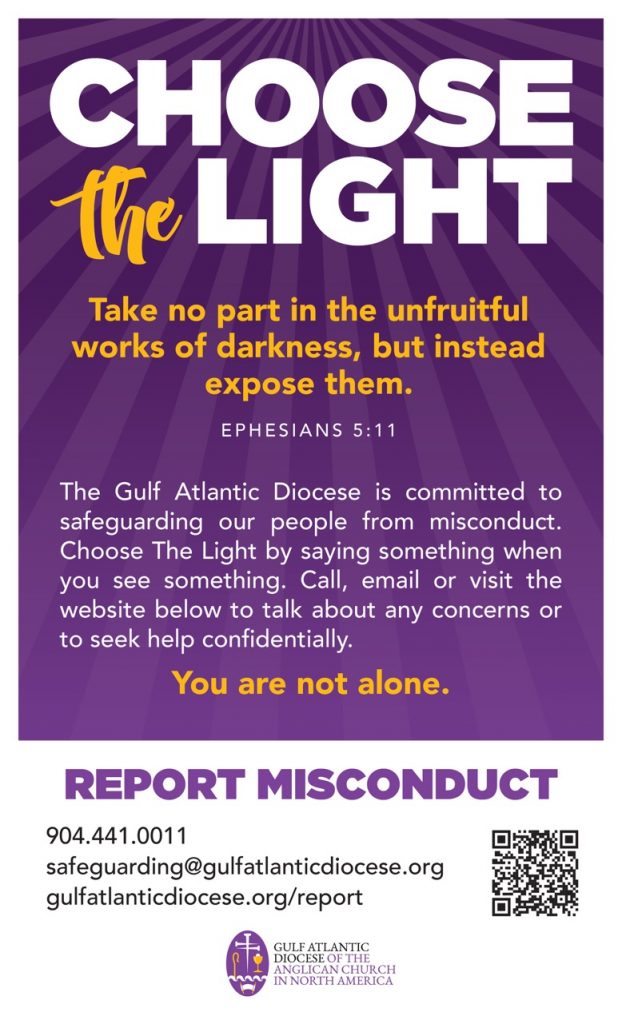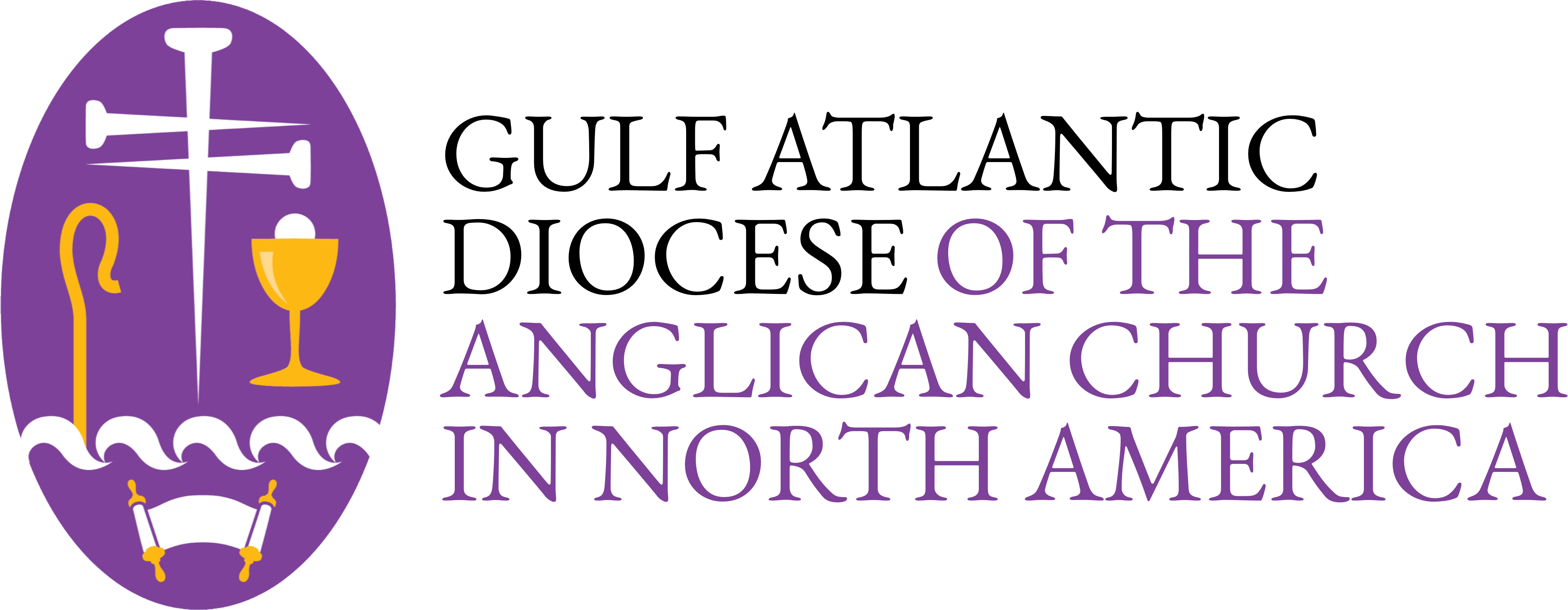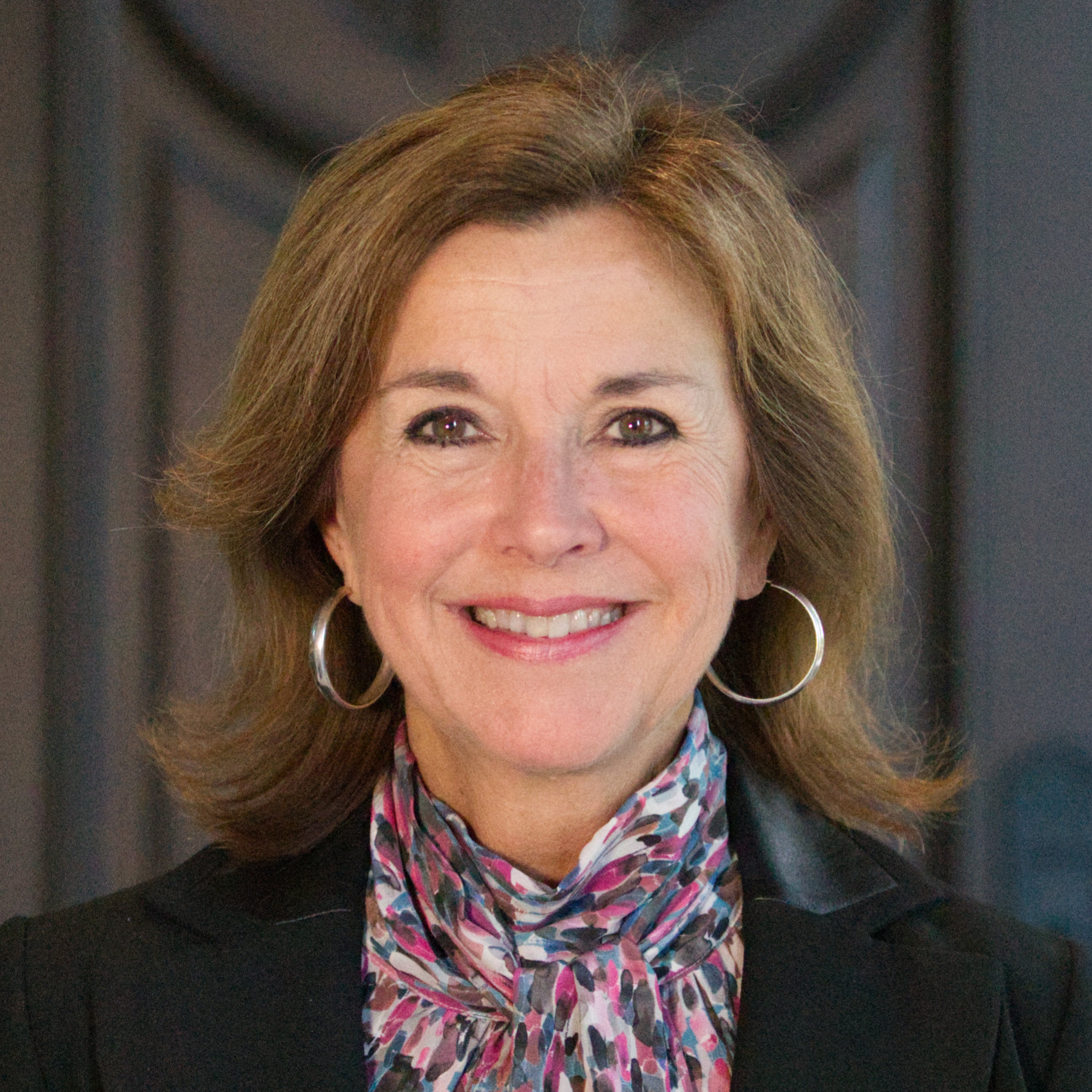Safeguarding Our People
The Holy Scriptures speak of the Church as the Body of Christ and call its members to live lives that are rooted in Christ and grow together in love, thanksgiving and service to God and neighbor. To be a Christian is to be part of a new creation, a new humanity guided and empowered by the Holy Spirit. The Church is to be a community of truth, justice and mercy, compassion and reconciliation, mutual service and steadfast faithfulness. The Church’s relationships should exemplify this as a sign to the world.
The Gulf Atlantic Diocese is committed to responding to the issues of abuse and to confronting the reality of any inappropriate conduct by members of the clergy, lay employees, and volunteers. The Diocese is committed to the protection of our people, to the prevention of incidents, and to responding to potential survivors quickly and with care.
As the Body of Christ, we are called to walk in the light, uncovering that which is done in the darkness, and to protect the vulnerable. We are grateful for your ministry and your commitment to choosing the light.
The Gulf Atlantic Diocese has a Safeguarding Committee that helps the diocese to safeguard our people through prevention, response, and training. This Committee is overseen by the Director of Safeguarding, the Rev. Leah Slawson.
Prevention
The primary guidance for churches in safeguarding is the Gulf Atlantic Diocese Safeguarding Our People Policy. All churches are expected to review this policy annually and submit the congregational certificate of compliance to the diocesan office. Members of the clergy are also asked to submit their individual acknowledgment of receipt of this policy to the diocesan office.
The diocesan Safeguarding Committee offers guidance for churches regarding insurance. Please contact Catherine Datres for help with insurance.
Choose the Light Poster
 This poster, redesigned in 2024, is formatted for printing on US Legal (8½ × 14) paper, which most office printers can accommodate.
This poster, redesigned in 2024, is formatted for printing on US Legal (8½ × 14) paper, which most office printers can accommodate.
Policies & Forms
- Safeguarding our People Policy (Sept. 2024)
- Appendix A - Congregational Certification of Compliance
- Appendix B - Individual Acknowledgement of Receipt of Policies
- Clergy: Submit online
- All others: Download PDF & return to your church coordinator
- Appendix E - Individual Church Addendum to Diocesan Policy (Optional)
- Appendix G - Volunteer Minimum Standards
- Appendix H - Pastoral Counseling Guidelines & Waiver
- Appendix I - Sample Conflict of Interest Policy & Waiver
- Protect My Ministry - Background Checks
- Social Media Screening Checklist
- Sample Screening Docs - useful when hiring new employees (from Brotherhood Mutual's Safety library)
- Sample Supervisory Plans - 3 models based on the SOP Manual (editable Word document)
- Sample Incident Report
- Caring for the Community - a congregational trauma debriefing model
- Brotherhood Mutual Safety Library - Brotherhood Mutual is dedicated to the protection of people in our churches, offering multiple documents, plans, and tools for screening, training, and reporting
Training
All clergy, employees, vestry, and lead volunteers are required to complete diocesan Safeguarding Our People training in order to help protect those in our care. For more information on training in your local parish, please contact your Senior Warden or Rector.
Response
The Safeguarding Committee offers a crisis response team to help churches and the diocese respond to potential crises. Additionally, the Safeguarding Committee provides a survivor advocate to potential survivors to ensure their voices are heard and their concerns are taken seriously. Each congregation is required to place a copy of our diocesan Choose the Light Poster in a visible place in their administrative space. This poster includes information about how to report misconduct.
The Diocese takes all complaints and accusations seriously and is committed to providing external responders to receive any complaints or accusations of misconduct from our clergy or employees. If you have been harmed by clergy or employees in our Diocese, please report this misconduct using one of the following methods:
- Fill out this reporting form, or
- Utilize our safeguarding hotline (904) 441-0011, or
- Email the Safeguarding Response Team.
These platforms are monitored by trauma-informed responders who are not employed by the Gulf Atlantic Diocese. External and transparent investigations will be conducted when necessary.

